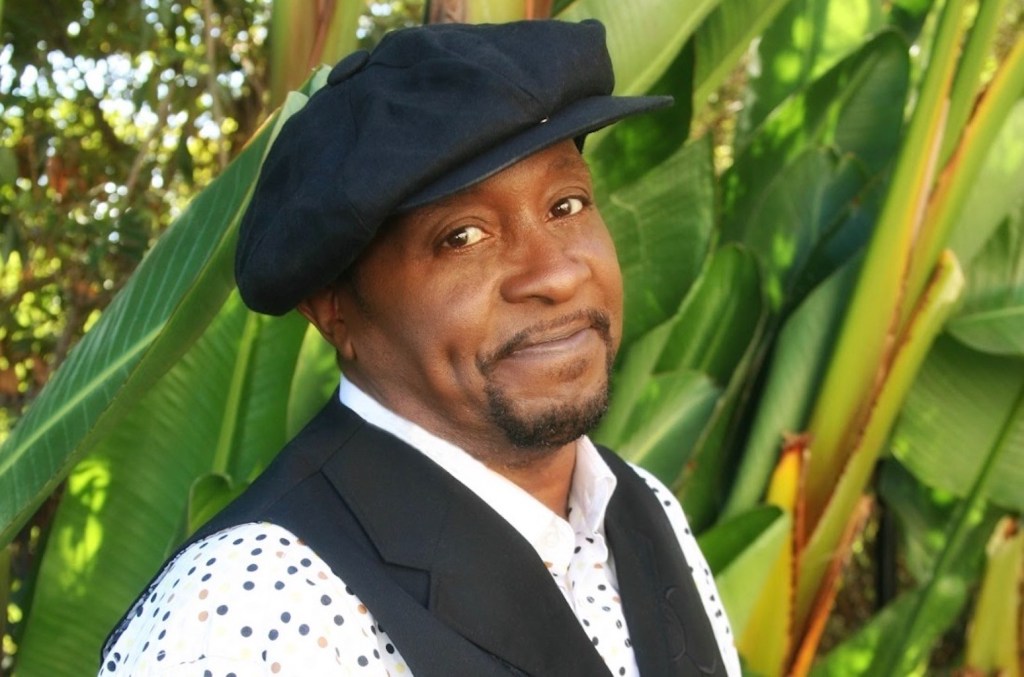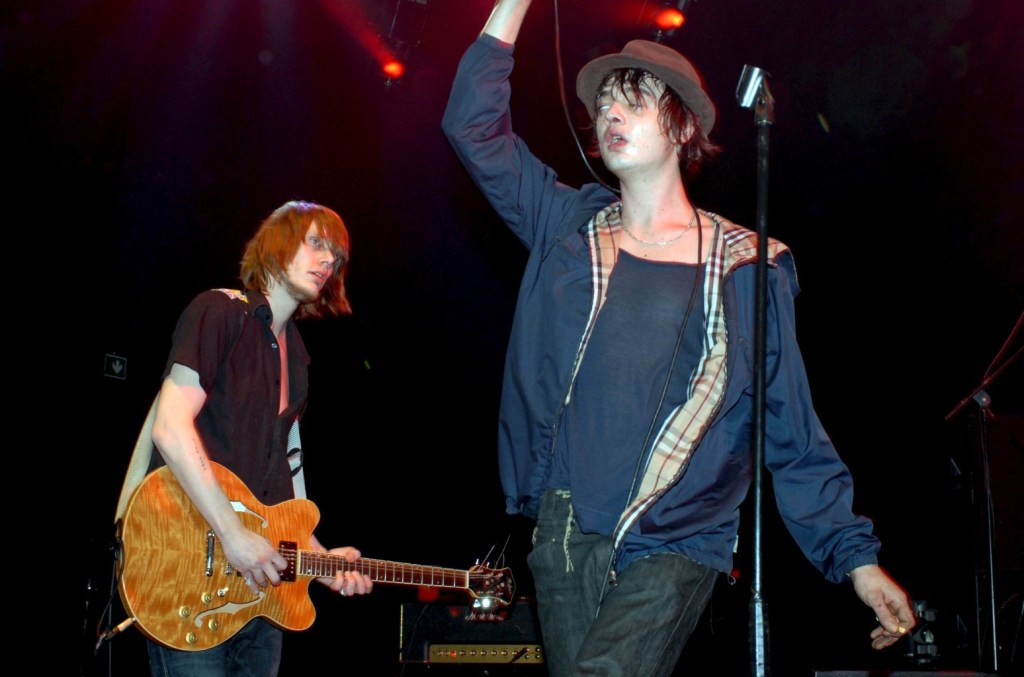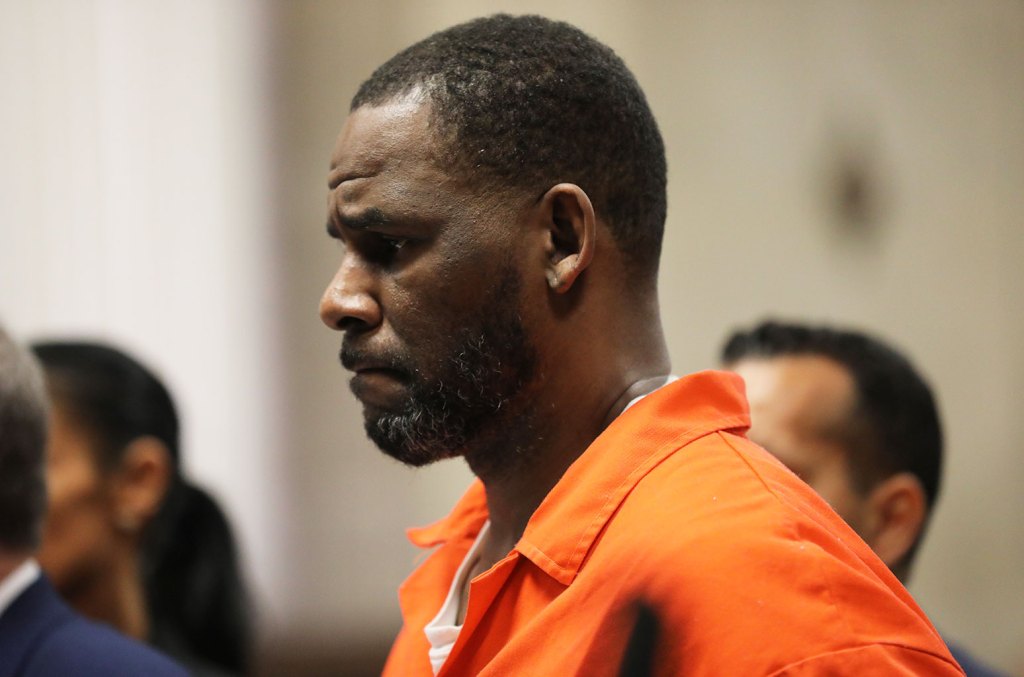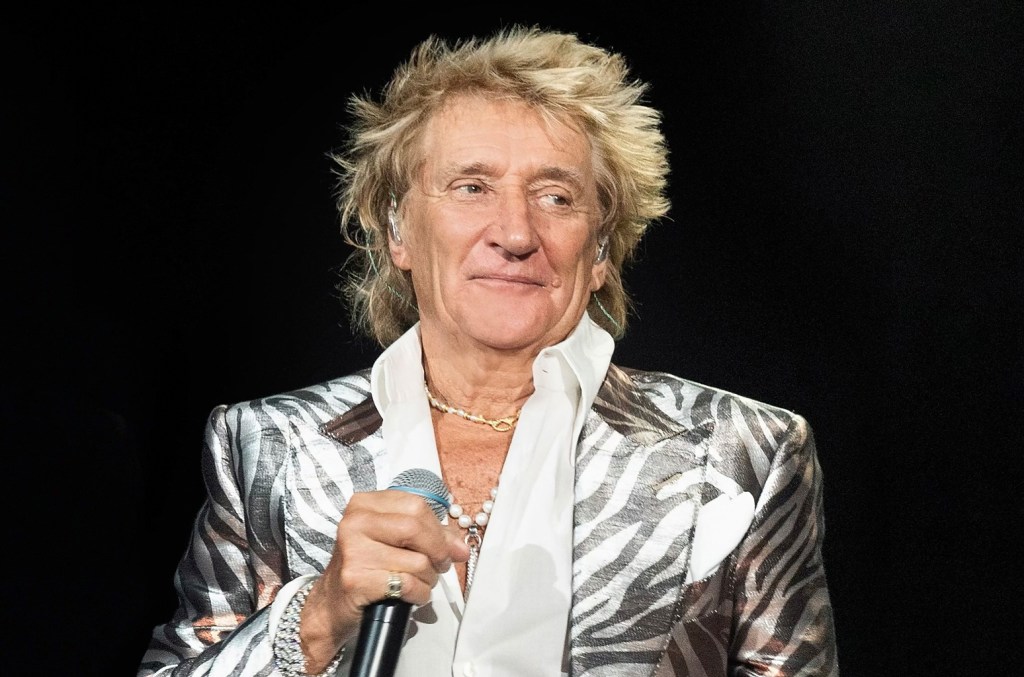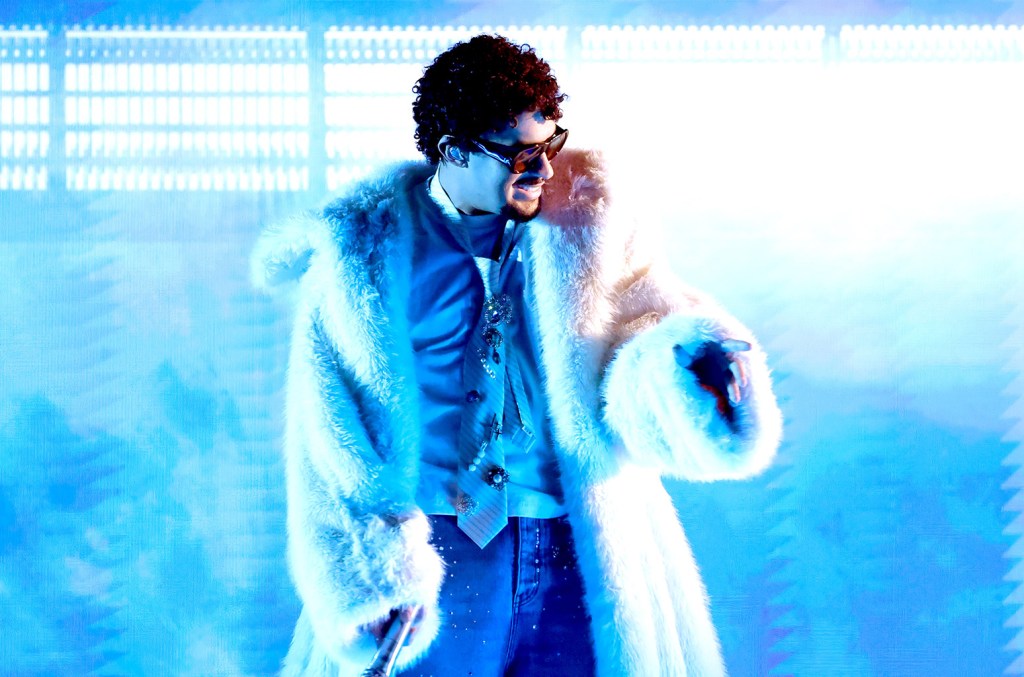nsfs
Page: 4
Joan Baez has a theory about Donald Trump, who is the subject of her new poem published Thursday (Oct. 23).
In the piece titled “Little Green Worm: A Note to the President” shared with Rolling Stone, the folk icon slams the politician’s lack of “empathy,” “impulse control” and “basic intelligence,” positing that Trump has none of the above due to a “little green worm” entering his brain and eating it all up. It comes amid the ongoing “No Kings” rallies protesting the twice-impeached POTUS’ policies.
“I’ve been thinking about a little green worm that has worked its way into your anterior insular cortex, the part of the brain where empathy originates,” Baez wrote. “The little green worm quickly devoured yours. He then munched onward until he came to the prefrontal cortex, which is involved in impulse control and regulating social behavior.”
“It’s meant to stop us from blurting out vulgarities such as ‘Grab her by the p—y’ and ‘S–thole countries’ or accusing all Mexican immigrants of being criminals, rapists and drug dealers,” the poem continued.
The piece closes with Baez illustrating how the little green worm eventually moves on to the part of Trump’s brain that should be “responsible for thought,” only to find that he doesn’t have one. “Oh s–t: there’s nothing there,” the musician concludes.
Billboard has reached out to the White House for comment.
As a musical pioneer of 1960s counterculture, Baez has long been open — in her music and otherwise — about her beliefs surrounding politics and social justice. In March, she told John Mulaney, “Our democracy is going up in flames … we’re being run by a bunch of really incompetent billionaires.”
While speaking to Rolling Stone about her latest piece, she explained that turning to poetry instead of songwriting has helped her process the overwhelming nature of today’s political landscape.
“When I’m present and looking out at my own yard and the trees and all of that, it’s still as beautiful as it ever was,” she told the publication. “And then there are times of great sorrow and times of frustration, like everybody. And I found that the poetry helps — just doing it and getting it down on paper or on computer to keep my head above water.”

Bruce Springsteen is continuing to speak out against Donald Trump, with the rock star offering up a “prayer” for “no kings” amid the ongoing protests against the president. At the American Film Institute Opening Night Gala on Wednesday (Oct. 22) — where Springsteen was in attendance to support new biopic Deliver Me From Nowhere — […]
Cavin Yarbrough, half of the 1980s R&B duo Yarbrough & Peoples, has died at the age of 72. The singer-musician-producer passed away on Thursday (June 19) owing to complications from heart disease. “He was the love of my life, my protector. Now he’s my guardian angel,” Yarbrough’s wife and longtime music partner, Alisa Peoples, said […]
Patrick Walden, former guitarist for the British rock band Babyshambles, has died at the age of 46.
The band, fronted by Pete Doherty, announced Walden’s passing in a social media post on Friday (June 20). A cause of death was not disclosed.
“It is with deep regret and sadness that we share the news of Patrick Walden’s death,” the band wrote on Instagram. “We feel very fortunate to have known/loved and worked with him and we kindly ask for respect and privacy during these difficult times.”
The statement was signed by Doherty and fellow band members Mick Whitnall, Drew McConnell and Adam Ficek.
Babyshambles was formed in 2003 by Doherty after his departure from The Libertines due to substance abuse issues. Walden, a London native, joined as lead guitarist, alongside McConnell on bass and Gemma Clarke on drums.
In addition to his guitar work, Walden co-wrote several songs on Babyshambles’ 2005 debut album, Down in Albion, including “Pipedown,” “Loyalty Song” and “F—k Forever,” which peaked at No. 4 on the Official U.K. Singles Chart.
Before joining Babyshambles, Walden played in various bands including Fluid, the Six Cold Thousand and the White Sport. His time with Babyshambles was brief, ending in 2005 amid struggles with drug addiction and a legal case involving his girlfriend that resulted in a brief jail sentence. The charges were later dropped.
Walden was replaced by Whitnall for the band’s sophomore album, Shotter’s Nation, which dropped in 2007. Though he never officially rejoined the group, Walden occasionally performed with Babyshambles at select shows over the years. The band has reunited sporadically during Doherty’s solo performances.
Doherty had previously hinted at a potential reunion tour to mark the 20th anniversary of Down in Albion, though it was unclear whether Walden was expected to be involved.
“It is on the cards,” Doherty told NME in December 2024. “We will get back together and get in a room with the instruments and play through the old songs, then get on stage and do it. But it’s the ‘who’ and the ‘when’ that needs to be worked out. I think we’ll just keep that one on the horizon and deal with that one next year. Before then, I’ve got a new collection of songs which I’m putting out on my own label, which is tidy.”
A federal judge has rejected R. Kelly’s emergency request to be let out of prison due to an alleged jailhouse murder plot against the disgraced R&B star, who’s serving more than 30 years for multiple sex crime convictions.
Kelly’s attorney, Beau Brindley, has been petitioning a Chicago court for Kelly’s release since last week, saying prison guards are trying to have the singer (Robert Sylvester Kelly) killed to stop him from uncovering prosecutorial misconduct in his case. Brindley claims jail officials attempted to solicit a fellow inmate to carry out the hit, and that when that didn’t work, they fed Kelly an overdose quantity of sleeping pills and denied him medically-necessary surgery for blood clots.
Prosecutors have dismissed the allegations as a “fanciful conspiracy” and “deeply unserious.” Judge Martha M. Pacold denied the bid for release on Thursday (June 19) without addressing its merits, saying such a request must be brought as a civil rights lawsuit or habeas corpus petition in North Carolina, where Kelly is imprisoned.
“Jurisdictional limitations must be respected even where, as here, a litigant claims that the circumstances are extraordinary,” wrote the judge.
Judge Pacold issued her decision ahead of a hearing that had been set for Friday (June 20), canceling the court date after seemingly learning all she needed to know from voluminous court papers that have been filed on the issue.
In a statement shared with Billboard on Thursday, Brindley said his team is “not surprised by this ruling as we knew that technical jurisdiction would be a challenge under these circumstances.”
“However, we had no choice but to act immediately given explicit evidence of a threat to Robert Kelly’s life,” Brindley added.
On Friday (June 20), Brindley tried another avenue to convince the Chicago judge to release Kelly: filing a motion for a new trial and asking for emergency bail in the meantime.
The Friday motion reiterates Brindley’s previous allegations that prosecutors unlawfully pressured a witness to testify against Kelly and intercepted Kelly’s communications with his lawyers ahead of his federal trial in Chicago.
“If someone dies in prison, it seems commonplace,” writes Brindley. “With that in mind, it becomes easy to understand how the people who committed this corruption and those that helped cover it up would rather kill a disgraced inmate convicted of sex crimes than face consequences that could ruin their lives and careers.”
The motion repeatedly notes that President Donald Trump is prioritizing rooting out corruption in the justice system. Brindley has publicly asked Trump to pardon Kelly in conjunction with the jailhouse murder plot claims.
A spokesperson for prosecutors did not immediately return a request for comment on Friday.
Kelly was convicted in Chicago of child pornography and enticing minors for sex in 2022, one year after a separate federal jury in New York also found the singer guilty of racketeering and sex trafficking
The former R&B star was sentenced to 30 years in prison for the New York conviction and 20 years in the Chicago case, though all but one year of the second sentence will overlap with the first. Both convictions have been upheld on appeal.

Bruce Springsteen isn’t backing down when it comes to his thoughts on President Donald Trump.
In a wide-reaching interview with The New York Times published Wednesday (June 18), the rock star criticized everything from the politician’s leadership to his effect on the social fabric of the United States. Springsteen is currently on his Land of Hope & Dreams Tour, on which he performs a setlist every night that he says “addresses our current situation” under Trump’s administration.
And how would Springsteen describe the current situation? “It’s an American tragedy,” he told the publication. “I think that it was the combination of the deindustrialization of the country and then the incredible increase in wealth disparity that left so many people behind. It was ripe for a demagogue. And while I can’t believe it was this moron that came along, he fit the bill for some people.”
Reflecting on Trump’s first few months in office since winning a second term, Springsteen added that “what we’ve been living through in the last 70 days is things that we all said, ‘This can’t happen here. This will never happen in America.’ And here we are.”
The Boss has long been vocal in his opposition to Trump, endorsing Kamala Harris in the 2024 election and telling The Atlantic four years prior that the twice-impeached POTUS was a “threat to our democracy.” Trump, however, hit back at Springsteen a few weeks ago after the rocker slammed his administration as “corrupt, incompetent and treasonous” during a May concert in Manchester, England.
“I see that Highly Overrated Bruce Springsteen goes to a Foreign Country to speak badly about the President of the United States,” Trump wrote on Truth Social shortly after the show. “Never liked him, never liked his music, or his Radical Left Politics and, importantly, he’s not a talented guy — Just a pushy, obnoxious JERK … This dried out ‘prune’ of a rocker (his skin is all atrophied!) ought to KEEP HIS MOUTH SHUT.”
The insults didn’t phase Springsteen, who has since continued to voice his dismay with the current state of affairs in his home country on stage. In late May, he released an EP featuring a recording of the speech that ticked Trump off.
And in his NYT interview, the Rock & Roll Hall of Famer didn’t shy away from criticizing Trump’s immigration policies, which in recent weeks have manifested in widely criticized ICE raids in places like Los Angeles. “There’s a large migrant population that lives and has altered Freehold in a very vibrant way,” Springsteen said of his hometown in New Jersey.
“There are communities all across America now that have taken in immigrants and migrant workers,” Springsteen continued. “So what’s going on at the moment to me is disgusting, and a terrible tragedy.”
Despite everything, though, the musician says he still has a lot of hope for the future of the country he’s spent his career writing about in his songs. Why? “Because we have a long democratic history,” Springsteen said. “We don’t have an autocratic history as a nation. It’s fundamentally democratic, and I believe that at some point that’s going to rear its head and things will swing back.”
He added, “Let’s knock on wood.”
Rod Stewart and Donald Trump may live close to one another, but that doesn’t mean the rock star feels any sort of neighborly way about the President of the United States.
In an interview with Radio Times published Tuesday (June 17) ahead of his upcoming Glastonbury performance, Stewart didn’t hold back when asked about the mogule-turned-politician, with whom he used to be friends. “I’m not a great fan of Trump,” he told the publication. “I knew him very, very well. I used to go to his house.”
“I live literally half a mile away,” continued Stewart, who has a residence in Palm Beach, Fla. “We’re both on the beach. I used to go to his Christmas parties. He’s always been a bit of a man’s man. I liked him for that. But he didn’t, as far as I’m concerned, treat women very well.”
Stewart added that he thinks becoming the leader of the country changed his former pal for the worse. “Since he became president, he became another guy,” the musician said. “Somebody I didn’t know.”
Trump and Stewart were friends for many years. Even leading up to the 2016 election — which the billionaire ended up winning, securing his first of two nonconsecutive White House terms — the Grammy winner stood by his fellow Floridian, telling Billboard when asked about the election in 2015, “I have strong political beliefs, [but] I don’t want to get into it … Donald Trump happens to be a friend of mine.”
Now, Stewart says he definitely doesn’t consider Trump a friend, citing one policy issue in particular as unforgivable. “No, I can’t anymore,” the artist said. “As long as he’s selling arms to the Israelis — and he still is. How’s that war ever gonna stop?”
Stewart joins a number of musicians who have criticized Trump’s administration, with many of them similarly taking issue with the U.S. government’s involvement in Israel’s ongoing war against Hamas — a conflict that has resulted in the deaths of more than 50,000 Palestinians since Oct. 7, 2023, when the terrorist group incited retaliation after killing 1,200 Israeli civilians and took 251 hostages.
“Someone’s gotta do something,” added Stewart. “What [Israeli President] Netanyahu is doing to the Palestinians is exactly what happened to the Jews. It’s annihilation, and that’s all he wants to do — get rid of them all. I don’t know how they sleep at night.”
The Rock & Roll Hall of Famer is set to headline Glastonbury later in June, with The 1975, Neil Young and Olivia Rodrigo also leading the four-day festival’s bill. Charli xcx, Doechii, Gracie Abrams, Noah Kahan, Wolf Alice and Busta Rhymes will perform as well.
Stewart’s set will take place after he was forced to postpone a handful of U.S. concert dates due to illness.
Like the reported five million plus Americans who took to the streets across the country over the weekend as part of the massive “No Kings” rallies, Bad Bunny is not happy with the Trump administration’s recent actions. In a video posted to his Instagram Story on Tuesday (June 17), the singer lashed out at what he said was a raid by Immigration and Customs Enforcement (ICE) in his native Puerto Rico.
“Those motherf–kers are in these cars, RAV4’s,” Bad Bunny can be heard saying in the video in Spanish over footage of a scrum of unmarked SUVs blocking the street and seemingly apprehending some people on what the singer said was Avenida Pontezuela in Carolina, Puerto Rico. “They came here… sons of b–ches, instead of letting the people alone and working.”
Trending on Billboard
At press time it was unclear what the footage Bad Bunny posted was depicting, but if the action was part of the Trump administration’s stepped-up ICE raids all over the U.S. it comes after the president surged more than 4,000 National Guard members and 700 active-duty Marines into Los Angeles — over the objections of both the mayor and the state’s governor — to quell what have been mostly peaceful protests against the ICE raids in that city.
Though Trump promised to remove criminals who are in the U.S. without proper documentation, the ICE raids have so far targeted a much wider swath of folks. NPR reported recently that the raids in Puerto Rico have mostly rounded up Dominican immigrants in actions that harken back to the island’s “long history of anti-Dominican racism,” with racial profiling possibly playing a role in the arrests.
Special Agent in Charge of Homeland Security Investigations in Puerto Rico Rebecca González-Ramos said agents on the island nation have done surprise raids at hotels and construction sites, questioned people in the street and asked workers at the department of motor vehicles to hand over the names and addresses of the estimated 6,000 people who got licenses under an immigrant-friendly law that opened driving privileges to people without legal status, according to NPR.
González-Ramos added that so far ICE agents in P.R. have arrested close to 500 immigrants for deportation in the first four months of Trump’s second administration, less than 80 of whom had criminal records; three-quarters of those arrested have been Dominican nationals.
Bad Bunny joins a rising chorus of artists who’ve lashed out at the ICE raids. Over the weekend, Olivia Rodrigo posted her thoughts on the ICE deportations, saying, “I’ve lived in LA my whole life, and I’m deeply upset about these violent deportations of my neighbors under the current administration. LA simply wouldn’t exist without immigrants.”
Addison Rae also said she was “so disappointed and disturbed by what is happening across our nation. This country could not exist without immigrants. Every human being deserves the right to exist in an environment that makes them feel safe, lovingly protected, and embraced.” Finneas claimed he was tear-gassed during a peaceful protest in L.A. earlier this month, writing “F–K ICE… If you are into this fascist s–t you are small and weak and will lose.”
Green Day’s Billie Joe Armstrong has also hit out at ICE, in addition to Katy Perry who has called the raids a “huge injustice,” while Shakira said she lives in “constant fear” as an immigrant in the U.S. Others who protested the actions in L.A. include Tyler, the Creator, The Game, Kehlani, Tom Morello, Reneé Rapp and Rebecca Black.
Earlier this month, California Gov. Gavin Newsom sued the Trump administration to end what he said was the “illegal and unnecessary takeover of a CalGuard unit, which has needlessly escalated chaos and violence in the Los Angeles region.” The lawsuit names Trump, Defense Secretary Pete Hegseth and the Department of Defense, in a filing that outlines “why the takeover violates the U.S. Constitution and exceeds the President’s Title 10 authority, not only because the takeover occurred without the consent or input of the Governor, as federal law requires, but also because it was unwarranted.”
Trump responded over the weekend by saying that ICE must “expand efforts to detain and deport Illegal Aliens in America’s largest Cities, such as Los Angeles, Chicago, and New York, where Millions upon Millions of Illegal Aliens reside,” cities the president described as “the core of the Democrat Power Center.”
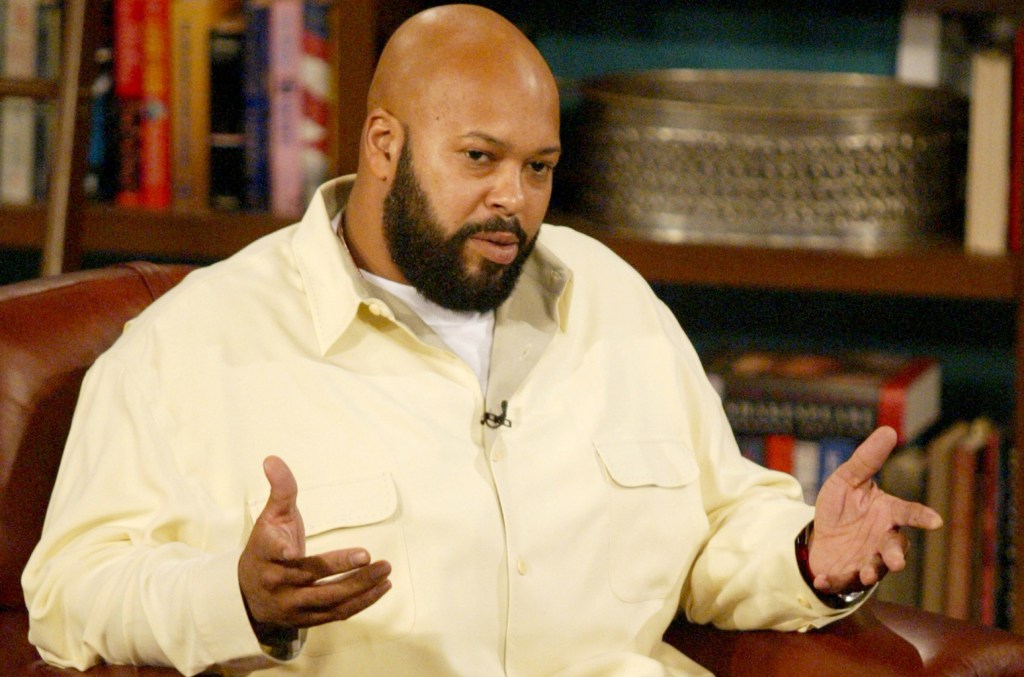
Suge Knight has continuously shared his opinions about Diddy‘s ongoing trial and recently spoke in more detail about why so many of Puff’s supporters are going silent. On Monday, Suge Knight called in for a lengthy phone call with host Aubrey O’Day, who has been covering the ongoing trial as part of Amy Robach and […]
R. Kelly’s lawyer says the disgraced R&B star and convicted sex offender was recently hospitalized after overdosing on anxiety and sleep medication in prison, attributing the event to a supposed jailhouse murder plot that prosecutors have dismissed as entirely made-up.
Kelly, who’s serving a 30-plus-year sentence for two federal sex crime convictions, has been petitioning a Chicago court for release since last week. Defense lawyer Beau Brindley claimed in an eyebrow-raising June 10 court filing that Bureau of Prison officials had tried to solicit another inmate to kill the singer (Robert Sylvester Kelly) to stop him from uncovering prosecutorial misconduct in his trials. Prosecutors deny that there’s any murder plot against Kelly.
Now, Brindley claims prison officials have tried another method of killing Kelly: administering the singer an overdose quantity of his medications while he was in solitary confinement last Thursday (June 12).
“In the early morning hours of June 13, 2025, Mr. Kelly awoke,” Brindley writes in a court filing from Monday (June 16). “He felt faint. He was dizzy. He started to see black spots in his vision. Mr. Kelly tried to get up, but fell to the ground. He crawled to the door of the cell and lost consciousness.”
Brindley says Kelly was taken from the Federal Correctional Institution in Butner, N.C., to Duke University Hospital, where he was informed of the overdose. Kelly was hospitalized for two days to treat the overdose, according to the court filing.
To make matters worse, Brindley says, Kelly learned at the hospital that he had developed life-threatening blood clots in his lungs that required surgery. But Kelly was allegedly denied this surgery and taken back to Butner, where he was returned to solitary confinement without medical care.
“He could die from this condition, and they are letting it happen,” writes Brindley. “There is no legitimate explanation for that.”
Brindley’s court filing reiterates his request to have Kelly released to home confinement or temporary furlough, saying “his life actually depends on it.”
Prosecutors have called the allegations a “fanciful conspiracy” and “deeply unserious.” They also say the Chicago criminal court doesn’t have jurisdiction over the issue, and that it must be brought instead as a civil rights case or habeas corpus petition in North Carolina.
In response to Kelly’s latest claims about the alleged overdose and blood clot issue, prosecutors wrote late Monday, “This is the behavior of an abuser and a master manipulator on display.”
“This court should not allow Kelly to turn its docket into a grocery store checkout aisle tabloid,” prosecutors added.
Billboard reached out to Duke Hospital seeking to confirm the facts of Kelly’s hospital stay. A Duke spokesperson deferred to the Bureau of Prisons, which declined to comment on the matter.
“For privacy, safety and security reasons, we do not discuss the conditions of confinement for any incarcerated individual, including medical and health-related issues,” said Bureau of Prisons spokesperson Scott Taylor in a statement to Billboard.
The motion to release Kelly from prison is scheduled to be heard by the Chicago judge on Friday (June 20). Meanwhile, Brindley has been publicly asking President Donald Trump to pardon Kelly.
Kelly was convicted in 2021 and 2022 at two separate federal trials, one in New York and one in Chicago, on a slew of criminal charges including racketeering, sex trafficking, child pornography and enticing minors for sex.
The former R&B star was sentenced to 30 years in prison for the New York conviction and 20 years in the Chicago case, although the vast majority of the second sentence will overlap with the first. Both convictions have been upheld on appeal.

 State Champ Radio
State Champ Radio 